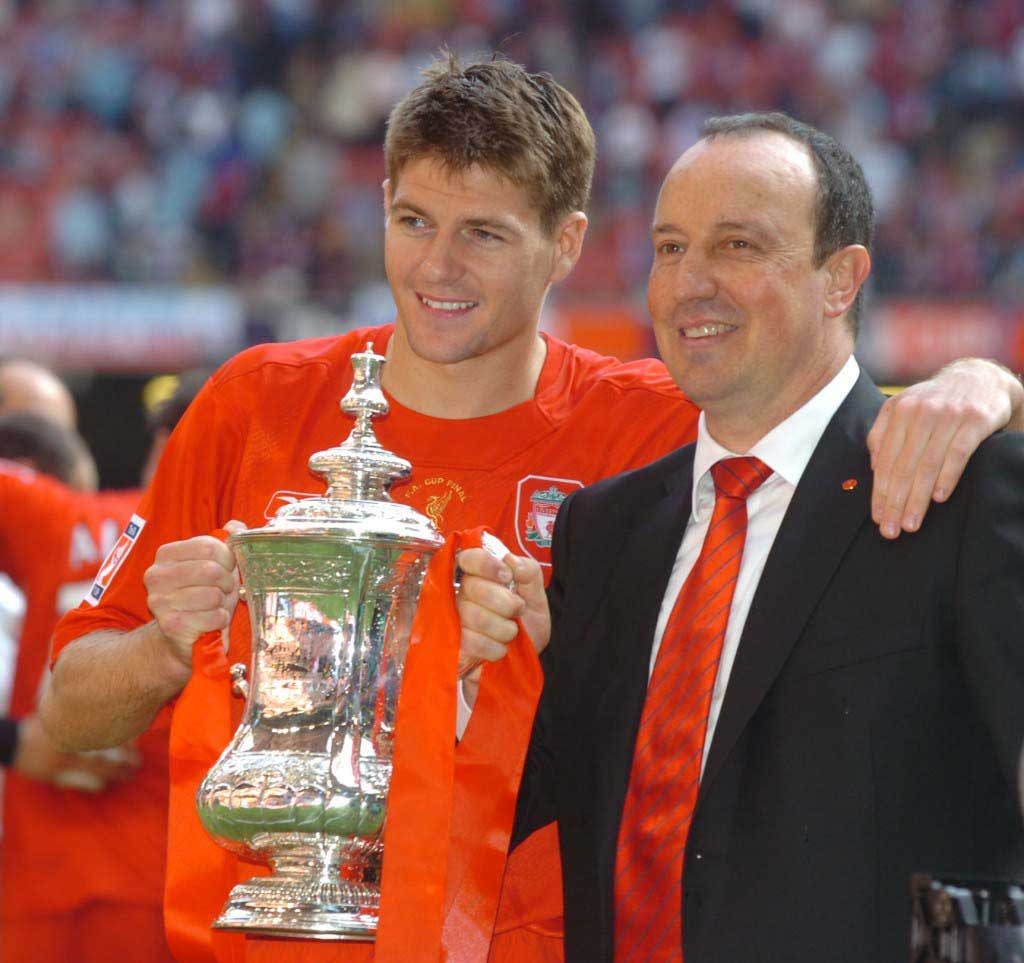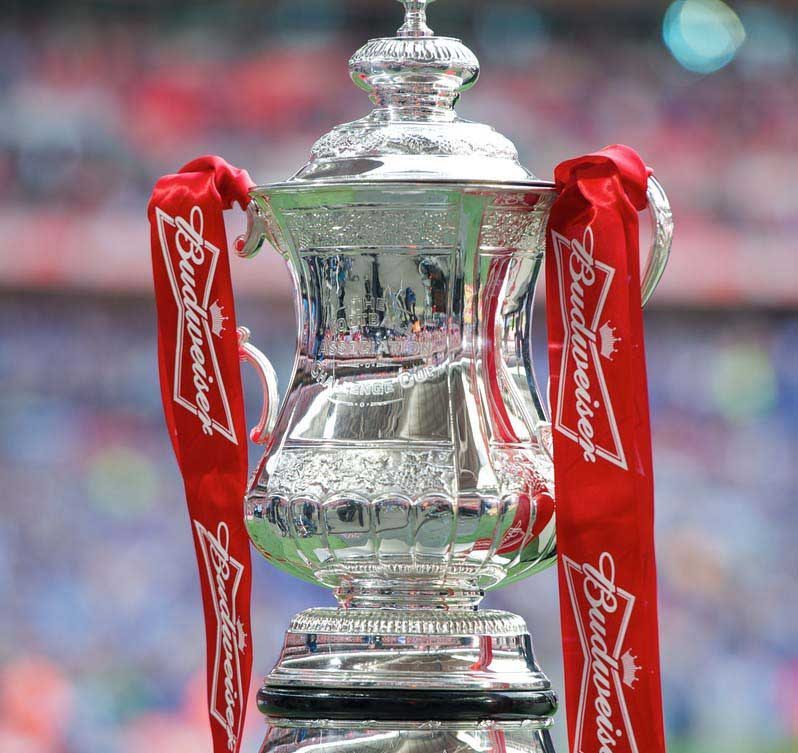 THERE has been lots of talk this week of the dilemma facing Jürgen Klopp as Liverpool prepare to face Exeter City in the FA Cup third round tonight. The manager is in an almost impossible position with a squad down to the most calcium-deficient of bare bones. Amid a glut of games, it’s inevitable that the Reds will be forced to field a much-weakened team; featuring a mix of the hardiest among the weary and an influx of youngsters trying to make their name, just to concoct an 11. One shudders to think of the remaining options to fill seats on the substitutes’ bench.
THERE has been lots of talk this week of the dilemma facing Jürgen Klopp as Liverpool prepare to face Exeter City in the FA Cup third round tonight. The manager is in an almost impossible position with a squad down to the most calcium-deficient of bare bones. Amid a glut of games, it’s inevitable that the Reds will be forced to field a much-weakened team; featuring a mix of the hardiest among the weary and an influx of youngsters trying to make their name, just to concoct an 11. One shudders to think of the remaining options to fill seats on the substitutes’ bench.
Given the Reds’ other commitments; the enduring priority of a top-four finish in this topsy-turvy League, the impending pursuit of not-to-be-sniffed-at silverware in the Capital One Cup and the looming renewal of European competition, it would hardly be the most inconvenient outcome should Liverpool exit the cup at the first hurdle.
The likely strength of the side we field at St James’ Park makes defeat a distinct possibility against League Two footballers for whom the fixture offers a genuine chance to put their name in lights. Sadly, in the season’s circumstances, plenty of Liverpool fans would shed only crocodile tears if The Grecians become the latest in a long list of notorious FA Cup “giant-killers”.
To supporters of a certain generation, accepting a cup exit with no more than a shrug of the shoulders would amount to sacrilege. This year, Liverpool might have other justifiable priorities, but nonetheless, a feeling that the Cup doesn’t matter and a potential humbling at the hands of Exeter can be written off as a transient embarrassment is all rather sad.
Above all, it is a sentiment that defines the neglect shown to what was once the most famous competition in the world, rather than any perceived lack of desire from Klopp and his players (or indeed us as fans) to progress.
In years gone by, just the mere mention of the words “FA Cup Third Round” would send a shiver down the spine. From the moment you heard the rattle of the old numbered wooden balls, which were plucked from the black velvet bag at the old FA headquarters on Lancaster Gate during the draw broadcast on BBC Radio Two, there would be weeks of anticipation before battle commenced in January.

The draw itself — not televised until the 1990s — painted a picture in the mind’s eye of a theatre of its own. For the paranoid, it screamed of subterfuge and suspicion conducted in a dimly-lit, mysterious smoke-filled room.
The men of the FA have always been bumbling old fools, but almost by accident, aided and abetted by the crackly radio signals of the 1970s, they supplied one of football’s most captivating dramas without a ball being kicked. If any of the teams’ numbers were given out beforehand, they were restricted to the almost sacred cup-holders and perhaps the one non-league side who had survived; only adding to the suspense.
Nostalgia? Yeah, maybe, but it knocked socks off the noisy televised ritual today.
For lower league opposition, reaching round three still makes this weekend the highlight of the footballing calendar but in days of yore the sense of expectation extended also to the country’s best. It’s fair to say that the FA Cup always dwarfed the League Cup for heritage and rivalled winning the League Championship for prestige. The final was the centrepiece of the entire season and to walk out under the Twin Towers in May would rank alongside the elite modern player’s dream of appearing in a Champions League Final.
For Liverpudlians of my generation our relationship with the Football Association Challenge Cup has always been one of strange fascination, largely because of the 12-year gap between Bill Shankly’s 1974 Wembley exhibition against Newcastle and Kenny Dalglish’s Cup and League double in 1986. During those 12 barren years there were seven league titles but no FA Cups.
I was insanely lucky to be at the 1974 Final courtesy of a benevolent Evertonian uncle with a sharp eye for the black market. I was six years old and don’t remember much of it; other than a vast, uninhibited crowd smelling of beer and cigarettes, blurred shapes of Liverpool red versus the Geordies’ black and white against a backdrop of the vivid green of the old Wembley acre. My love for the Cup — even in its parlous modern day state — still lingers, dating back to that rainy day 42 years ago.
After that, there were seemingly endless years of pain. To help you get up for this year’s FA Cup, I’m going to share the heartache.
Naturally, the 1977 defeat in the final at the hands of Manchester United, which denied us the famous treble, still rankles. I refused to eat my tea and was still on hunger strike by Sunday afternoon.
However, I think I cried more tears the year before (in 1976) when Roger Davies scored a 72nd-minute winner for Derby County in the Baseball Ground mud. As bad as it was losing a final, it always felt worse to go out early (in the fourth round) and have to watch the rest of this glorious competition unfold without Liverpool. There was seldom anything as depressing as a weekend of FA Cup action without your team being involved.
In 1978 Second Division Chelsea routed us 4-2 in the third round, the chief architect being a skilful little winger Clive Walker, who opened and closed the scoring.
It was incredulous — the European Champions undressed — at a barren Stamford Bridge where the terraces remained uncovered and parked cars were stationed behind the goals. Watching it the next day on ITV’s Big Match highlights and listening to the great Brian Moore’s delighted voice reach hitherto unfound octaves only made it worse.
The next two years brought semi-final misery. Manchester United did for Bob Paisley’s greatest ever side in a 1979 Goodison Park replay after a draw at Maine Road. Both games saw each club wear a change strip with United in white and black and Liverpool in all yellow for the first time.
When I picture Liverpool in yellow, to this day, I don’t conjure images of Ian Rush banging in goals at an icy Villa Park, instead I picture Brian fucking Greenhoff peeling away in celebration at his late headed winner while a vanquished Ray Clemence wrings his hands in dismay.
If that wasn’t bad enough, 1980 saw another team of Liverpool league champions bow out at the penultimate hurdle; this time after three (yes, three) replays against Arsenal.
Our nemesis this time was Brian “hooknose” Talbot at Coventry’s Highfield Road.
If anything signified the importance of the FA Cup, it was that the idea of replay after replay was deemed just normal without a single thought to inconvenience or fixture pile-up.
The four ties in this epic drama were played on a combination of Saturday, Wednesday, Monday and Thursday across 19 days with league games interspersed between. The penalty-shoot out has a lot to answer for in the eyes of us old romantics!
The following four seasons saw relatively early exits, but all just as excruciating. Everton tore up the form book to beat us at Goodison at 1981. The only consolation was that the Blues’ Imre Varadi was struck in the face by a meat pie thrown from the Liverpool end while celebrating his winning goal.
Another Chelsea debacle followed in 1982, this time by two goals to nil, and without looking it up I can recall the unlikely name of Peter Rhodes-Brown (and Colin Lee) as the luminary footballers who put paid to another team of Bob Paisley’s Champions.
Perhaps Paisley was jinxed — his own personal Cup Final angst when not selected as a player in 1950 to face Arsenal, extending to his management of Liverpool.
As if to underline the curse, a shock home defeat inspired by former Reds great Jimmy Case saw Brighton and Hove Albion end Paisley’s career without the decoration of a cherished FA Cup Winners’ medal.
The usually nerveless Phil Neal missed a penalty that day and I can still hear the thud of the ball against the advertising hoardings at the Kop end after his spot-kick flew wide of the right-hand post.
Joe Fagan, who succeeded Paisley, then also fell victim to the Brighton Hoodoo in 1984, followed by a semi-final replay defeat a season later at the hands of Manchester United that was almost a mirror image of 1979; this time courtesy of United’s talisman, Bryan Robson.
 Of course, there were many victories too during that period that fostered a love of the FA Cup and a yearning that was finally satisfied with the iconic 1986 Double winning triumph over Everton at Wembley.
Of course, there were many victories too during that period that fostered a love of the FA Cup and a yearning that was finally satisfied with the iconic 1986 Double winning triumph over Everton at Wembley.
The thing that made it great back in the day was that it mattered. That it matters so much less today is a sporting tragedy. 1500 words cannot fully do justice to the decline and fall of a competition, which has lost all but the last vestige of its lustre; and why so many of us would be unmoved by the prospect of defeat tonight
The Cup though will always have a special place in the hearts of all Liverpudlians, even if it’s the Steven Gerrard Final of 2006 that you cherish above 1986 or 1974, or indeed if you’re old enough, 1965.
I just hope that Liverpool can put a team out at Exeter tonight that can do justice the club’s history in the competition and prolong the dream for another year.
Just don’t wear yellow.












Good read, I am also of an ancient generation, one of my earliest LFC memories was the defeat at Watford in the 6th Round, 1970, followed, all too rapidly, by the 1971 final v Arsenal (“and let’s see that Charlie George goal yet again…..” Noooo!).
Yes, the FA Cup mattered then and it matters tonight for me, whoever turns out for LFC.